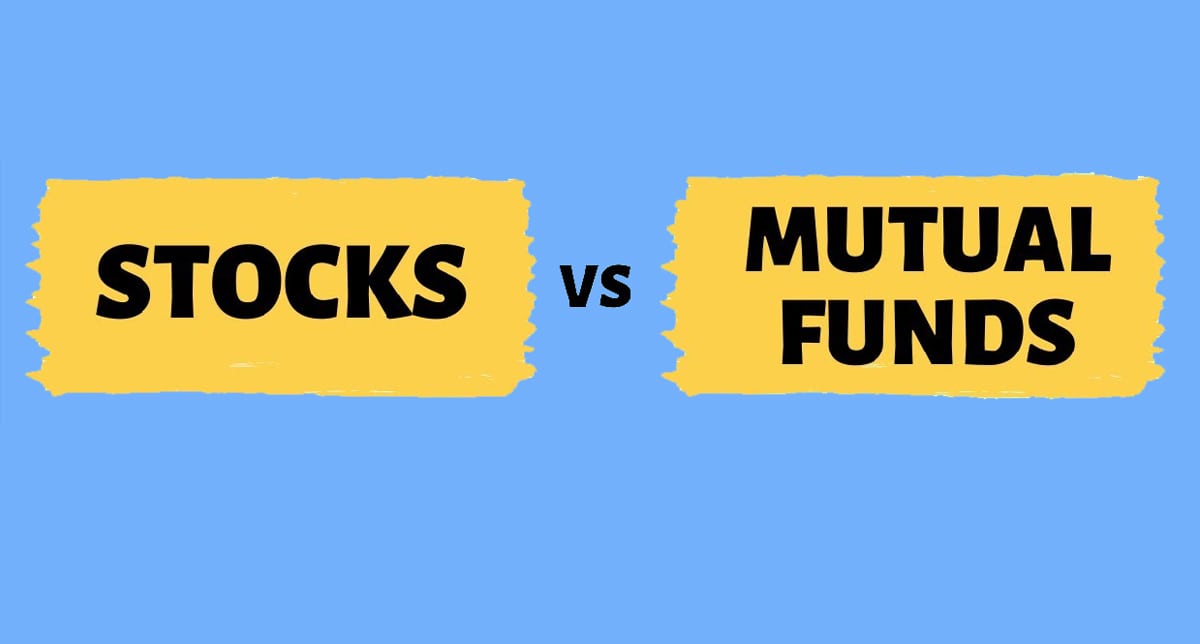
Stocks and mutual funds are two popular investment alternatives that enable individuals to create portfolios and improve their wealth. Even though stocks are typically included in mutual funds, there are differences between Stocks and Mutual Funds two of which may appeal to a range of investors with various goals.
Read: How to Invest in the Share Market? Tips for Beginners 2023
What are Stocks
A stock is a representation of a portion of corporate ownership. Shareholders profit when a business succeeds, such as Tesla (TSLA) or Amazon (AMZN). The stock price typically rises as the company expands its business, allowing shareholders the chance to recoup their investment by selling their shares for a higher price.
The main characteristics, benefits, and drawbacks of Stocks vs Mutual Funds are listed here.
Benefits and Drawbacks of Stocks
Although stocks can be a beneficial strategy to increase your wealth and profit from significant price changes, they also have some disadvantages.
Pros
Easy trading –Individual stocks are simple to trade using an online broker, and a variety of apps make the procedure simple.
Potential for large gains–Significant gains may be possible depending on stock performance. Future wealth could result from this.
Minimal trading cost–Stocks frequently have low trading expenses. In actuality, a lot of brokerages don’t impose trading fees on particular equities.
Cons
Potential for substantial losses –Although there is a chance of substantial gains, you can also suffer substantial losses if the stock price falls and doesn’t rise.
Research takes time – Finding the stocks and assets that are optimal for your portfolio can take some time.
Tension –Stock investing can feel like riding on an emotional roller coaster, and the stress can make it difficult to fall asleep at night. Before you begin investing, it’s critical to be aware of your own risk tolerance.
What are Mutual funds?
A pooled investment that holds shares of numerous different assets is known as a mutual fund. The large number of various equities and bonds are frequently held by numerous mutual funds. When you buy shares in a mutual fund, a piece of everything it invests in is given to you. There are also inexpensive index mutual funds available that follow well-known indices like the S&P 500. Other funds may be actively managed, in which case a professional select the mutual fund’s investments depending on various objectives, such as growth or income. Over extended periods of time, actively managed funds have historically underperformed passive funds and charged higher fees.
Benefits and Drawbacks of Mutual Funds
In terms of portfolio stability, mutual funds can be a good option, however, the results are not guaranteed. You should be aware of the following:
Pros
Can be affordable– Many mutual funds, particularly passively managed index funds, can be affordable, which means they don’t have a high expense ratio. Some brokerages also provide their own funds with no trading fees.
Instant diversification – As you are investing in a basket of assets, the risk associated with investing in individual stocks is reduced, and you do not need to buy multiple stocks to diversify your portfolio due to the fact that this is an instant diversification method.
Possibly less stressful — Mutual fund investing may occasionally be less stressful than stock investing in particular circumstances. The fund is probably less volatile than if you only bought a few stocks on your own because you hold a broad portfolio of stocks.
Cons
Some funds have sales “loads”–When you buy or sell shares of a mutual fund, there are some funds that charge a commission or load for the transaction. Before you even begin investing, these sales loads may cost you.
Can be expensive –Although there are funds with reduced costs, some have high expense ratios, often exceeding 1% of your investment each year.
Possibly not tax-efficient–If the mutual fund has sold assets and realized a profit, distributions may occur that result in a taxable gain. Therefore, you can still owe capital gains taxes even if you haven’t sold any of your mutual fund shares.
Could underperform the market –Having an actively managed mutual fund, or a fund managed by a team of traders, can leave you with a fund that does not perform as well as the market and you may even lose money if the fund does not do as well as the market. For actively managed mutual funds, the expense ratios are also often higher.
Which is a Better Investment?
The decision to invest in stocks or mutual funds is dependent on your own financial goals and risk tolerance, and the type of portfolio you want.
As diversity and lower risk may be more important for many investors, utilizing mutual fund schemes for a long-term retirement account can make sense. Individual stocks provide a method to increase returns for those looking to capitalize on the value and prospective growth, provided they can emotionally withstand the ups and downs.
People can directly access the equity market, which historically has provided the highest returns, through stocks. But in order to make the right choices, investors must constantly monitor how their stock investments are doing. The full burden of the risks and rewards rests with the investor.
When we examine mutual funds, we can observe that, in addition to portfolio diversification, professional fund management is another key advantage. Investors are spared the ongoing hassle of buying, selling, and monitoring their investments as a result.
Investors must determine their investing goals and gauge their risk tolerance before deciding which option is best for them. The investment tenure must also be taken into account.
When beginning the investment process, it can be helpful, to begin with index mutual funds and then contribute each month to create an efficient portfolio for those who have limited funds to invest. In the future, after you have gained more experience, you might consider investing in particular stocks. Consider your objectives carefully, then use investments to develop a plan that will bring you there. If you think stock market investing is too hazardous for you, you might want to add some of these low-risk investments to your portfolio.
Conclusion
The difference between Stocks vs Mutual Funds and which is a superior investment option should now be clear to you, we hope. The greatest approach to obtain those gains if you want to profit from the inflation-beating returns produced by equities but are limited by time and skill, and don’t want to deal with many of the downsides of direct equity investing is by investing through mutual funds.






